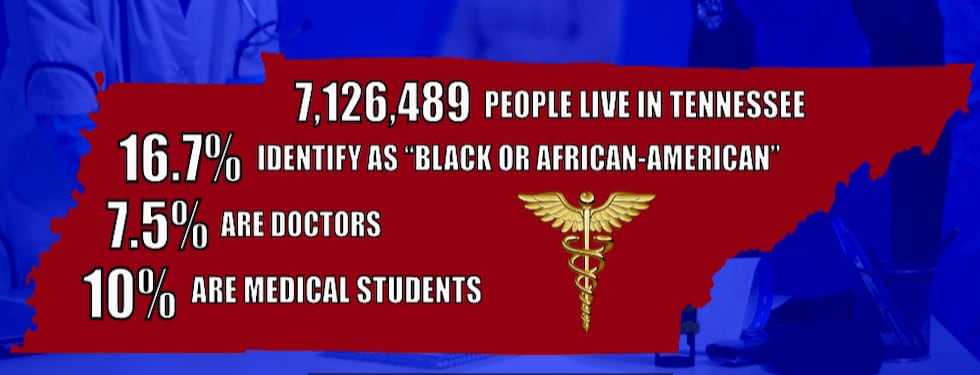Nashville program addresses ‘representation’ problem in medicine
“Sometimes we have to step back and not be intimidated by how big the problem is.”
NASHVILLE, Tenn. (WSMV) - A program that was first piloted in Nashville to funnel more minority students into science and medicine has expanded nationally.
The program, known as HBCU Scholars, is facilitated by the American Heart Association (AHA). It started in 2015 as an idea by Dr. Joey Barnett, a Professor of Pharmacology Emeritus at Vanderbilt School of Medicine. At the time, Dr. Barnett served as President of the Greater Southeast Affiliate of the AHA.
The program created partnerships between Historically Black Colleges and Universities (HBCUs) and nearby research institutions that allowed HBCU scholars to participate in cardiovascular research labs during the academic year.
Initially, four undergraduate students from Fisk University and Tennessee State University were paired with mentors at Vanderbilt University. The goal was to create a network of support around students who identify as African American to encourage them to pursue a career in science and medicine.
“Sometimes we have to step back and not be intimidated by how big the problem is,” says Dr. Barnett. “[We need to] figure out ‘what’s the thing we can do that can then go on and have a broader impact?’”
Lack of representation in healthcare costs the nation hundreds of billions of dollars. Research published in 2022 estimates health disparities in diabetes will cost society more than $5 trillion by 2050, including mortality, morbidity, and loss of work. Heart disease would cost more than $6 trillion, while hypertension would cost society even more.
The same study estimates that even if only 1% of health disparities could be alleviated by better representation in clinical research, it would result in more than $40 billion in gains for diabetes and $60 billion for heart disease alone.
“To be able to have individuals in underserved communities see [doctors] that look like them, that builds trust,” says Dr. Barnett. “That builds the type of environment [where we can] understand what the community needs and help provide that.”

Senior Biology major Jae Wells is a soon-to-be 3rd generation graduate of Tennessee State University. She recently completed her one-year mentorship in a dry lab with Dr. Loren Lipworth where they studied data and demographic factors that lead to abdominal aortic aneurysms (AAA).
“We were going through various lifestyle perspectives, trying to see how those correlate so we could make better judgments for our community,” says Wells.
Wells will graduate from TSU in May and begin attending Dental School at Meharry Medical College in June.
“The data shows that when you have people who look like you in those areas, there are better outcomes for those people,” says Wells. “I think it just brings comfort that there is somebody there who will take care of them and is going to put the best treatment for them.”
Nationally, only 5.7% of doctors identify as ‘Black’ or ‘African American,’ according to the most updated data by the Association of American Medical Colleges. It’s estimated the black community accounts for about 12% of the U.S. population.

The numbers in Tennessee are similar. As of July 2023, just over 7.1 million people lived in Tennessee. Of those, 16.7% identify as ‘Black or African American.’ However, of the 17,687 doctors practicing in our state, only 1,324 identify as ‘Black or African American,’ which is about 7.5% of all doctors in Tennessee.
“It is so important when we look at the history of minority communities and their lack, or unequal, access to care, to have individuals who represent those communities, engaged in the science, and are also involved in clinical care,” says Dr. Barnett.
To date, 201 Scholars have completed the year-long HBCU Scholars mentoring program. Based on its success, the Hispanic Serving Institution (HSI) Scholars Program was started in 2021. This past year, 29 HSI Scholars from 12 HSIs in the U.S. and Puerto Rico completed the program. In the two years that the program has been in existence, 59 Scholars have been trained.
The program is working. Based on the most recent data from the Association of American Medical Colleges, Black or African Americans made up 10% of total medical school students in 2023-24, up from 8.4% in 2016-17.
It’s an accomplishment Dr. Barnett is proud of, as he stays in contact with his mentees throughout their careers.
“You know, that morning you get a text that says ‘Dr B I’m sitting in my first class in my first year of medical school!’ That’s what we want!”

Copyright 2024 WSMV. All rights reserved.








